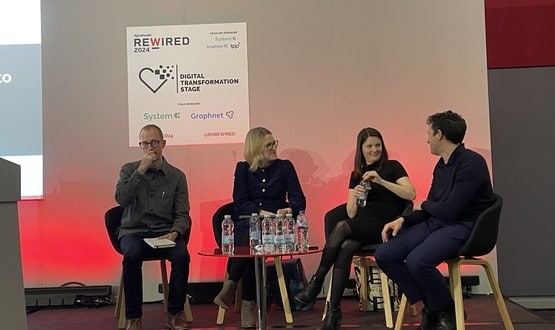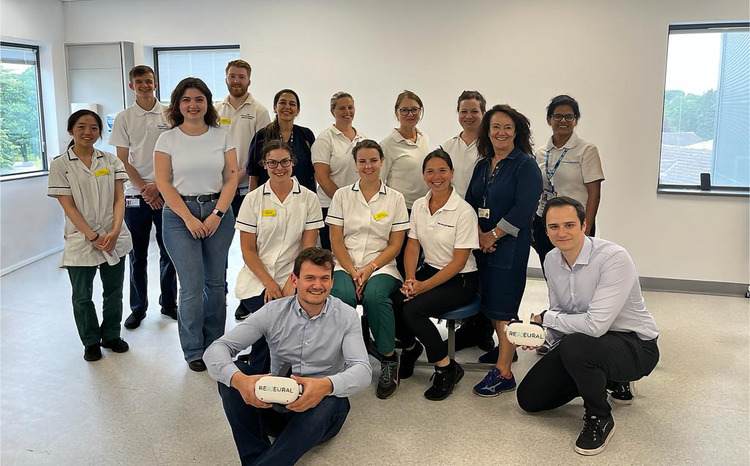NHS App to target prevention and increase messaging as expansion continues
- 13 March 2024

The UK government’s ambitions for the NHS App are likely to focus increasingly on preventative tools and greater use of the platform for messaging, three NHS England officials charged with its expansion told an audience at Digital Health Rewired24 on Tuesday afternoon.
NHSE remains committed to ensuring that a third of all health transactions take place through the NHS App over the next five years after spending 2023 “building the foundations for scalability and sustainable growth,” Liz Clow, director of Digital Citizen at NHSE, told the capacity crowd on the Digital Transformation Stage.
By the end of 2023, 75% of adults in the UK had registered for the app, and in December alone, 3.4 million secondary care appointments were viewed. In addition, more than 72 million prescriptions were ordered via the app in 2023, each one saving GPs approximately three minutes of time, Clow said.
NHSE is “steadily and iteratively” looking to bring more into the NHS App experience, she said, including adding more to the delivery of test results, adding more visual imagery and ensuring that patients have more data at their fingertips. Its users are increasingly stretching across all age ranges, Clow said, with nearly two-thirds of over 65s accessing the app over the past three months.
On Monday, NHSE launched a pilot project with 70 GP services allowing patients who are caring for others to fill out proxy applications through the app.
By making the app the “front door” for the NHS, the health service is hoping to encourage patients to use it more frequently to look at their records, find out about health screenings, sign up for a GP and ultimately learn how to manage their health.
Strengthen prevention and improve messaging
One of the key targets for the app going forward is its “keep me health” stream, which aims to allow users to manage their health with the help of deep integrations with third-party companies.
“We are signalling our tilt toward digital interventions that can help people to stay well,” NHSE’s director of Digital Prevention Services Rachel Hope told the audience. She described the direction as a “move from just the transactional to a much more personalised, proactive relationship.”
The preventative track for the app will help users understand their health and personalised risks, remind them about vaccination timelines, if they are eligible, and remind them that they need a health check-up
Ultimately, there are plans to introduce the latest medical tech to the app to allow people to self-manage their health, including allowing users to take blood pressure readings through their smartphones and using digital therapeutics more widely.
“We can get increasingly rich data about what people’s health outcomes are, and we can use that to support our decision-making and for really good research and evaluation,” Hope said. The app, she said, will give the health service the opportunity to offer a more “joined up” experience.
She noted that 80% of the disparity in health outcomes in the UK is attributable to modifiable conditions, and that 40% of the NHS budget is spent on treating preventable diseases.
Tim Clarke, product strategy lead at Digital Citizen at NHSE, discussed another key priority for the health service, integrating messaging more firmly in the NHS App. Poor communication is one of the top three complaints to the NHS, he noted, adding that better communication is critical to stemming deterioration of public satisfaction with the NHS.
The health service spends £450 million annually communicating with patients – just including distribution, rather than software – and much of this is still in secondary care, which remain largely paper-based.
Clarke noted that in Denmark, 95% of the population currently accesses health messages via an app. Around 56 million messages were sent on the NHS App in 2023, a 40-fold increase on 2022, he said. He added that NHSE aims to ramp up this number through the expansion of its NHS Notify function in 2024, with expectations of up to £20 million in savings for the health service.
Digital Health Rewired is taking place at the NEC in Birmingham 12-13 March. The programme is available here. You can still register to attend on site at Hall 8 of the NEC.




